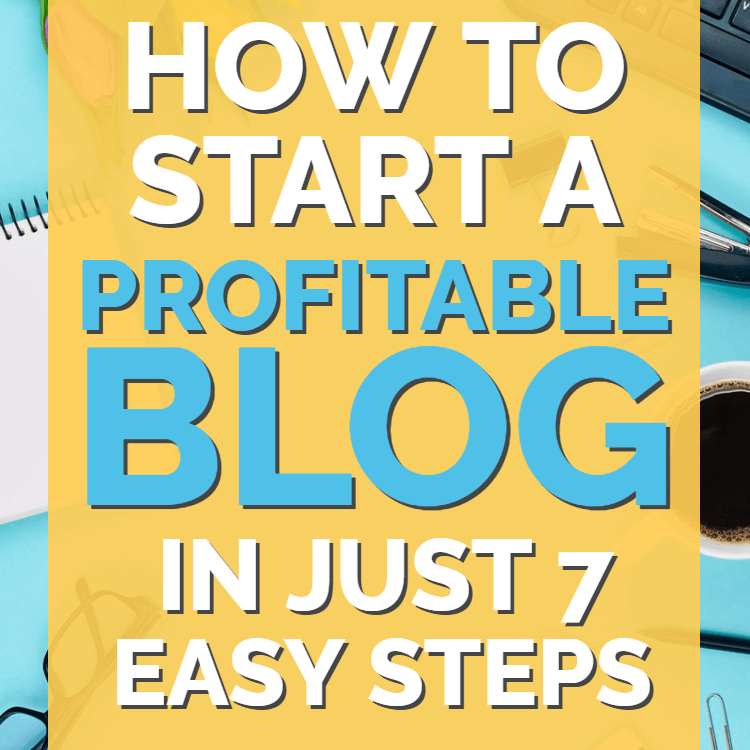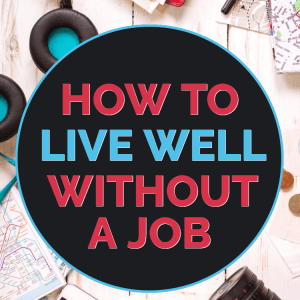Contents
In theory building wealth is very simple. Cut your expenses as low as you possibly can while growing your income. As the gap between these two numbers widens you invest the remainder into appreciating or cash-producing assets like shares or property.
With patience, your nest-egg should increase comfortably leading to the point of financial security.
Easy.
So why do so many people in the developed world still struggle with money?
Why are we in so much debt?
Why are so many of us little more than one missed paycheck away from bankruptcy?
Because this concept, while simple, isn’t easy. There’s something that gets in the way of this elegant concept. Its us. Our psychology. Our behaviour.
As a result things start to get quite messy. The beautiful orderliness of wealth accumulation becomes a messy room in which you’re forever losing your car keys.
Understanding this concept, and accounting for it, is therefore a crucial element on the road to financial security.
I’ve been thinking a lot more about the two opposing forces of earning and spending in recent weeks, and how best to optimize them for long term success. Today I’d like to talk about some of my thoughts and experiences in trying to achieve the optimal balance of spending versus earning.
You Can Be Too Frugal
Many frugal living blogs like this one push you to save every penny that you can. Set a budget. Stop spending. Cut open your toothpaste tube to get the last few precious drops out. Even better, spend your evenings making your own toothpaste to save a few pennies at the grocery store.
The goal of many money-saving blogs and books is to convince you to look for financial savings in every aspect of your life.
There are a number of problems when you adopt this mentality, many of which I have written about here. Let’s look at some of the most important factors…
The Time:Money Continuum
Money saving techniques can require a considerable investment of time. For example, many people will use a price comparison site to try and find the best deal on their car insurance. However the true frugalista will take things much further…
After comparing online quotes they may begin ringing the top providers from their search, trying to play them off against one another for further savings. They might research cashback sites to see if additional discounts can be achieved. They might use a specific credit card to purchase their insurance because it offers additional incentives. Every element of the purchase is optimized for minimum spend.
If you’re one of those people then I salute you. You have the tenacity that few others possess.
Sadly, many of us simply don’t have all this time available. I’m happy to spend half an hour once a year making sure I’m getting a decent deal, but I won’t spend a week of my free time to save a tiny percentage more.
Even among those people who do have the time, there is only so much of it they will invest in saving 2% on their insurance bill.
Put bluntly, frugality takes time. And we’re all more pressured for time than ever before.
So you need to make a decision: where should you invest your time? Is spending your weekend clipping grocery coupons worth it for you? Or would you rather start a side hustle or get a second job? Or even, shock horror, spend time with your family or friends?
Frugality Can Be Boring
The root cause for this article comes from my recent realisation that my frugality has turned me into quite a boring person. Friends of mine head off for long weekends on the continent, or race Ferraris around a racetrack, or go to watch live sports. But not me.
Except, just maybe I’m missing out as a result.
Most of my hobbies and pastimes are free or very low cost (reading, writing blog posts, gardening etc.) and while I enjoy them, I’m potentially not living such a rich and colourful life as many of my peers.
Of course, if I started to live like them then my Instagram profile might look more impressive, but my bank account would be quite the opposite. Once again, therefore, there’s a balancing act to perform between living a life that you love and planning for the future.
Frugality Can Affect How Society Sees You
We all know that peer pressure is bad. Attempting to “keep up with the Joneses” is a key source of over-spending.
On the other hand, driving that 30 year old rust bucket of a car may save you a load of cash, but probably gets you mocked by your friends. Most serious frugalistas would tell you that this is a price worth paying; that you should laugh just as much at all the money they’re wasting and the financial problems they’ve brought on themselves as a result.
But peer pressure can be more about getting teased by your buddies. I lose count of how many times during my career I have seen some people promoted handsomely because they “fitted”, or others that got ignored because they didn’t.
The person who wants to become VP of their company might think they’re financially savvy driving their old Honda Civic to work. But they could be inadvertently singling themselves out in a bad way. So their colleague with fewer skills but a more impressive car gets the corner office.
Therefore, while being frugal can very definitely save you money, in some cases it can actually impact other elements.
Again, we are talking about a “shades of gray” scenario, where people exist on a broad scale. Where are you on this scale – and where should you be?
You Can Earn Too Much
Few of us would refuse a pay rise if offered. But very few pay raises come without strings attached. More responsibility or accountability. More travel. Longer hours. Emergency cover. Late finishes. You get the point.
Again, many of us are willing to accept some of these minor inconveniences to climb the corporate ladder. However, the higher you climb, the more these factors can start to compact.
One day you wake up and realize that you may be earning a healthy salary but you’re stressed beyond belief, you have no free time, you never see your friends and, as a result, you hate your life.
At that point, what is the solution?
Do you knuckle down and just live with it, knowing you can’t afford to leave? I’ve certainly met plenty of people like that over the years. People who worked so much that their partners left them, demanding an impressive divorce settlement. Slowly their issues grew, until suddenly one day they had to accept that they had no life outside of work, and couldn’t afford to get off the treadmill.
There are alternatives – if you catch things early enough. Maybe you compromise and agree to stick out your soul-destroying job for an agreed period of time before getting out. “Two more years like this and I’m done”. And for the right salary that may be worthwhile.
Other options could include moving to a new company, hoping for less pressure. Taking a step downward, or sideways, with your current employer might be another option. Or even going part-time.
Again, lots of possible alternative lifestyles here, with no universal “right” or “wrong”.
Optimizing the Balance Between the Present and the Future
We know that wanton, uncontrolled spending is one of the quickest ways to financial ruin. The other is a lack of income, whether through redundancy, low pay or an inability to even land a job to begin with. We can agree this isn’t the route-map to follow if you want a strong financial future.
At the other end of the spectrum we have the wealthy spendthrifts. The misers. People earning high incomes, but watching every penny, as they turn into dislikable, sad old Mr Scrooge.
The rest of us exist on a scale between the two. The key is to optimize both elements such that you’re living a lifestyle you’re happy with while also continually growing your net worth for the future.
Here are some things to consider in achieving the perfect balance of the present vs the future…
Count Your Blessings
Do you remember the experience of buying your last car? Of being handed the keys, of the pleasant drive home in your new wheels. It felt good, didn’t it? But it didn’t last. Soon enough it was just another car.
The reality is that the “buzz” we feel when something new and positive occurs soon fades. There’s even a name for it – “hedonic adaptation”.
It’s for this reason that so many fall into the trap of retail therapy. That “must have” gadget soon loses it’s interest, and has to be replaced by something else.
Spend, spend, spend.
Right now there are loads of great things about your life, even if you don’t realize it. Maybe you’re in good health. Or have a great relationship. A loving family. Live in a beautiful home. Your “average” is someone else’s dream. However hedonic adaptation teaches us that you probably don’t appreciate these things as much as you should.
Taking time to consider your situation, and all the good things in life, can make it much easier to feel satisfied about your situation in life. This, in turn, not only brings you more pleasure, but makes putting away money for the future much easier.
How Satisfying Is Your Lifestyle Right Now?
If you got hit by a car while crossing the road right now, in your last fading moments would you feel you’ve had a good life?
If the answer is “no” then what changes would turn your answer around?
Taking into account hedonic adaptation we can assume that regular, large spending sprees probably aren’t going to have much of an impact on your lifestyle. But would you like to learn a new skill? Or volunteer for a charity you connect with? Or have more free time? Or prepare home cooked meals more often?
In many cases these little changes to your lifestyle can make a massive difference while costing next to nothing. Once again saving money is possible without having to give up your lifestyle.
Audit Your Spending From a Satisfaction Perspective
One of my favorite personal finance books is called “Your Money or Your Life”. In it, the authors lay out a very smart plan of auditing your spending based on how much pleasure or satisfaction it brings you.
Car insurance? Boring! Try to cut spending here.
New shoes for work? Dull! Try to find a bargain and make those new shoes last.
Weekend away with your significant other? Now this is something that can bring real pleasure. So be willing to spend some money on the occasion.
Having savings for a rainy day? Again, for me at least, something that helps me to sleep well at night knowing I’m insulated from many of life’s hiccups. Again, therefore, invest in this.
The overall concept here isn’t to just cut all your spending to the bone, but instead to cut those elements that don’t really have any major impact on your lifestyle. Then create a spending plan that allows you to invest for your future, but also includes room for some discretionary spending on things that will really have a positive impact your lifestyle right now.
Be Willing to Experiment
We’ve already seen that this most certainly isn’t a black and white situation. There are no right or wrong answers – only what feels right to you. And our feelings are subject to change. So be flexible and experiment.
Explore new options.
Did that posh meal out bring you as much pleasure as you expected? If not, what would you do differently next time? Does seeing your investment account growing bring you joy? If so, are there ways to increase your contributions further?
Try to be more conscious about your lifestyle, and where your money is going. Like tuning a car engine, over time this feedback can help you find the perfect compromise between the present and the future.











Add comment